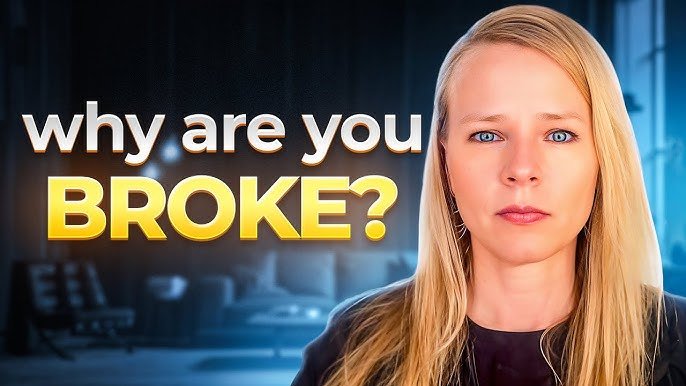Money Beliefs That Keep You Broke (And How to Fix Them)

Have you ever wondered why some people seem to attract wealth with ease while others constantly struggle, no matter how hard they work? The truth may lie not in their bank accounts, but in their beliefs.
Many of us carry deep-rooted ideas about money—some inherited, others shaped by experiences—that quietly sabotage our financial progress. These beliefs are powerful. They operate in the background, shaping decisions, habits, and ultimately our financial reality. But the good news is: you can change them.
Let’s dive into some of the most common money beliefs that keep people broke—and how to break free from them.
1. “Money is the root of all evil.”
This is perhaps the most damaging and misunderstood belief. While the original phrase is “the love of money is the root of all evil”, many people grow up thinking that wanting money is inherently wrong. As a result, they subconsciously reject opportunities to earn, save, or invest.
How to Fix It:
Understand that money is a tool—a neutral resource that reflects your values. It can build hospitals, fund education, feed the hungry, and support your dreams. Start affirming: “Money in the hands of good people does good things.”
2. “I’m just not good with money.”
This belief becomes a self-fulfilling prophecy. When you believe you’re bad with money, you avoid learning about budgeting, investing, or saving. You give up control and let your finances drift.
How to Fix It:
Start small. Track your spending for a week. Read a beginner’s book or watch a video about money management. Replace the belief with: “I’m learning to master my finances one step at a time.” Mastery is a skill—not a talent you’re born with.
3. “Rich people are greedy or dishonest.”
If you believe wealthy people are unethical or greedy, you may unconsciously distance yourself from becoming one of them. You won’t allow yourself to build wealth, because you don’t want to be seen—or see yourself—as “one of them.”
How to Fix It:
Recognize that wealth does not equal greed. Many wealthy individuals are generous, kind, and ethical. Look for role models—people who use wealth to empower others. Tell yourself: “I can be wealthy and kind-hearted.”
4. “I’ll never be rich, so why bother trying?”
This belief breeds resignation. It can stop you from budgeting, planning for the future, or setting goals. It leads to a cycle of just surviving, never thriving.
How to Fix It:
Challenge the belief by redefining what “rich” means to you. It could mean freedom, options, or the ability to care for your family. Say: “Every small step I take adds up. My future wealth is built on today’s decisions.”
5. “If I make more money, I’ll just spend more.”
This belief assumes your financial habits are fixed. It’s a fear that more income won’t help because you’ll always live paycheck to paycheck.
How to Fix It:
Shift your mindset to one of intentional growth. Practice budgeting now—even with a small income. Set aside a percentage to save or invest, no matter how little. Believe: “As I earn more, I will manage more wisely.”
6. “It’s too late for me to start saving or investing.”
Many people think they missed their chance at building wealth because they didn’t start in their 20s or 30s. This belief paralyzes action and delays progress further.
How to Fix It:
Start now. No matter your age or income, it’s never too late to build financial stability. Every dollar you save or invest today puts your future self in a better position. Begin with what you can, and grow from there.
7. “I need to work harder, not smarter.”
This hustle mentality leads to burnout. People believe that the only way to get ahead is to work longer hours, take more jobs, and sacrifice rest.
How to Fix It:
Understand the power of leverage and strategy. Learn to make your money work for you through investments, passive income, or smart budgeting. Say: “I can work smarter and build sustainable wealth.”
Conclusion: Rewriting Your Money Story
Your financial reality is shaped more by your beliefs than your bank balance. The good news? Beliefs can be changed.
Start by becoming aware of your internal money dialogue. Where did those thoughts come from? Do they still serve you?
Then, rewrite them. Replace limiting beliefs with empowering truths. Build new habits aligned with your goals.
Because once your mindset shifts—everything else follows.







